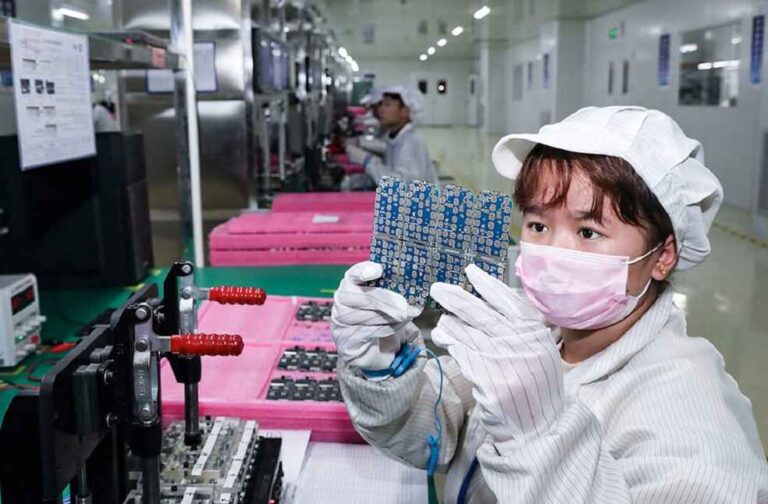China has proposed adjustments to its catalog of technologies subject to export bans or restrictions, aiming to align its regulations with international standards and bolster its management of tech export, according to industry experts.
The Ministry of Commerce announced on Thursday that it is seeking public feedback on the proposed revisions, which were developed in collaboration with the Ministry of Science and Technology. The draft changes include adding one item, revising one, and removing three from the catalog, fostering an environment conducive to international technological exchange and cooperation.

One of the proposed adjustments involves tightening export restrictions on battery cathode material preparative technology. Additionally, China plans to impose stricter controls on technologies related to the extraction of metallic gallium and lithium—critical materials for the semiconductor, electric vehicle, and consumer electronics sectors. The public consultation period for these proposals will continue until 1 February, as stated by the Ministry of Commerce.
Experts have praised the initiative, noting that harmonising export control systems with global norms enhances China’s integration into the international technological ecosystem. Ding Rijia, a professor of industrial economy at the China University of Mining and Technology in Beijing, highlighted the dual focus of the revisions: safeguarding critical technologies and mineral resources while promoting global innovation and technological exchange.
Cui Fan, an international trade professor at the University of International Business and Economics, added that the updated measures will allow China to manage technology exports with potential national security implications more effectively. The changes also aim to support domestic companies in navigating global markets legally and compliantly.

The catalog serves as a cornerstone of China’s technology trade regulations, classifying technologies into ‘prohibited’ and ‘restricted’ categories. Similar frameworks are employed by countries like the United States, the European Union, Japan, and South Korea to oversee their technology trade. For instance, the US Department of Commerce’s Bureau of Industry and Security (BIS) manages laws and policies governing the export of sensitive commodities, software, and technology, prioritising national security and maintaining US technological leadership.
China’s updated catalog, first revised in late 2023, reduced the number of controlled items from 164 to 134, reflecting the country’s commitment to streamlining its technology trade regulations. By refining these measures, China aims to balance its national security interests with the facilitation of international technological collaboration and economic growth.
POLICY & LAW | Singapore Tightens Trade Rules, Raises Fees for Meat and Egg Products



